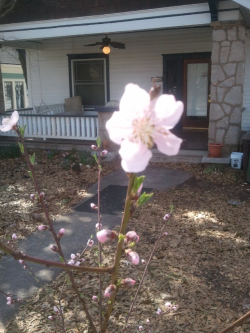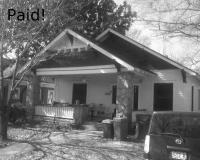 Today’s “housing shortage” or “affordability crisis” is artificial.
Today’s “housing shortage” or “affordability crisis” is artificial.
There are three primary causes.
First is private equity. Seeing big gains in prices over the last few decades, huge private investors have been piling into the market. They’re buying up the cheapest houses en masses and becoming slumlords. An example is Atlanta, where a huge part of the south side has been taken up. What makes it worse are tax breaks, meant to encourage affordable housing, which let private equity hide its profits.
There are two possible solutions, what should be done and what will happen. What should be done is that the tax breaks need to be reduced, slowly. As a matter of policy, we should be encouraging owner-occupied housing, and discouraging corporate-owned housing. What will happen is that interest rates will rise, increasing carrying costs, reducing profits, and causing some private equity owners to sell.
The second problem is technology. Technology has made houses more liquid than before. You still pay a fortune to move, up to 15% of equity. But costs for finding homes, choosing them, and transacting them continue to decline. Sadly, most of these gains are again going to big buyers. The move by OpenDoor to become a house-flipper rather than remain a tech outfit shows what is happening. Margins will decline once prices hit a ceiling, and again that depends on interest rates.
 The third problem is location. Where it is greater, prices rise faster. As more people work from home, people want bigger homes. Housing supply doesn’t adjust well to fast changes in demand. It wasn’t ready for the rush into “superstar cities” in the last decade, nor the COVID-induced rush outward in 2020. It’s not ready for the current move into “star cities,” secondary tech markets like Phoenix, Austin, Dallas, and Atlanta. Adjustment takes time.
The third problem is location. Where it is greater, prices rise faster. As more people work from home, people want bigger homes. Housing supply doesn’t adjust well to fast changes in demand. It wasn’t ready for the rush into “superstar cities” in the last decade, nor the COVID-induced rush outward in 2020. It’s not ready for the current move into “star cities,” secondary tech markets like Phoenix, Austin, Dallas, and Atlanta. Adjustment takes time.
Total demand for housing is driven by population. That’s not rising fast. Growth is going to fall off a cliff unless we find a way to bring immigration up. I don’t have grandchildren, and I doubt I ever will, not just because my kids can’t afford homes but because all younger people are more isolated than we were, less likely to marry until after they’re settled, and less likely to want the demands of child-rearing when they do. Eventually my generation will retire and die. Supply and demand will come into balance. I just wish that weren’t going to happen in the most painful way possible.









